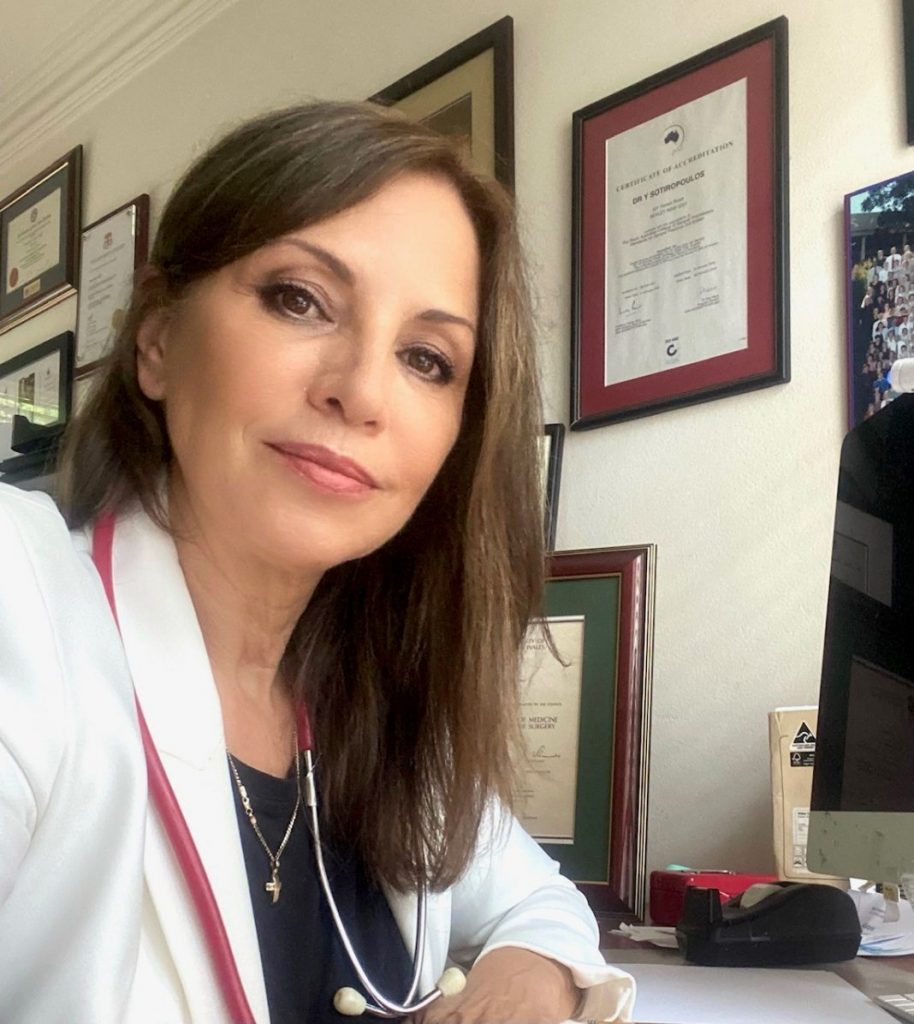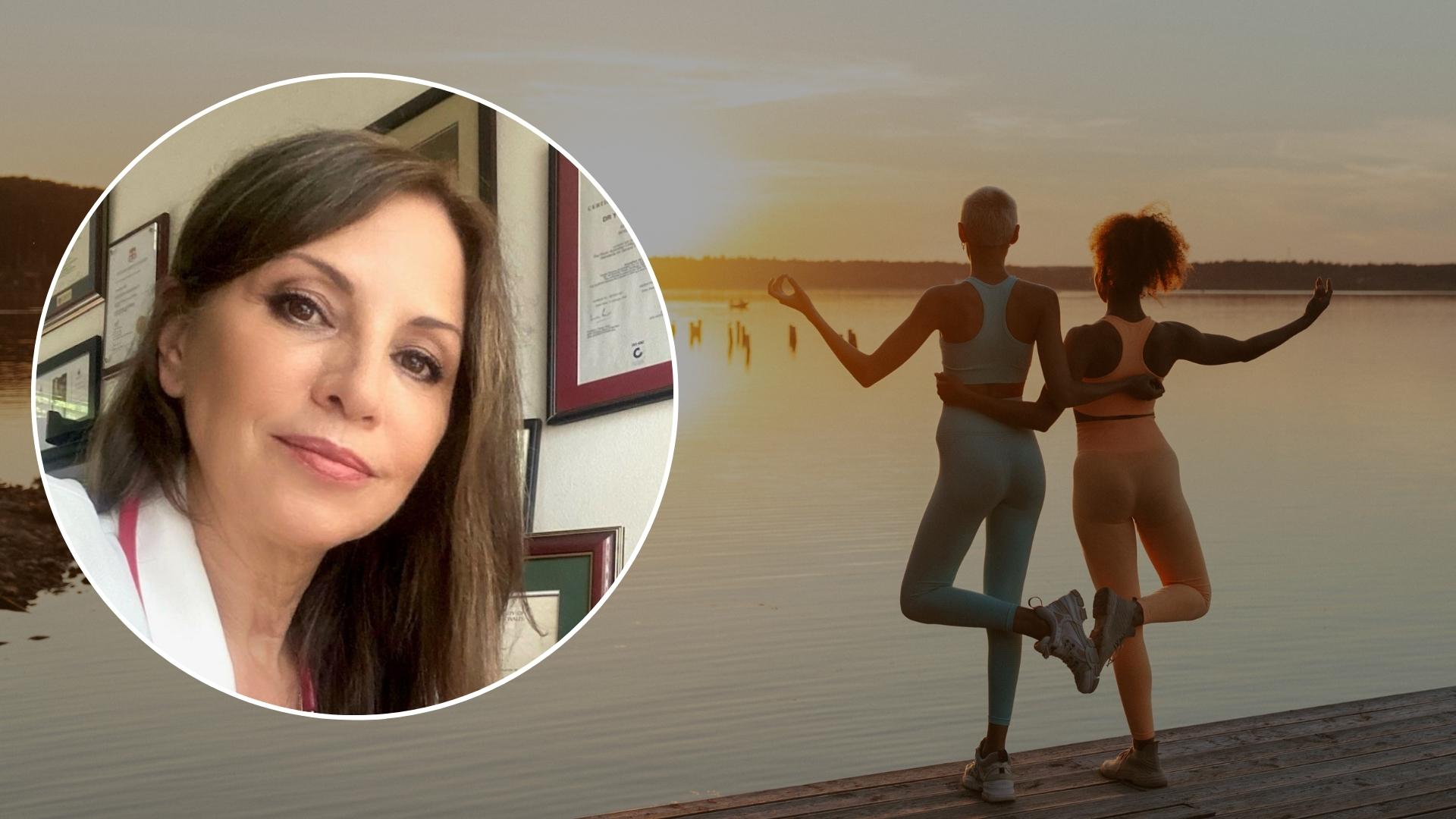To mark Women’s Health Week, The Greek Herald sat down with Dr Yiotoula Sotiropoulos, a General Practitioner (GP) from the Sydney suburb of Bexley.
Dr Sotiropoulos speaks openly about under-reported women’s health issues in the Greek community, as well as why she believes regular health check-ups are important.
1. In the Greek community, what do you believe to be the most under-reported women’s health issue? Why do you believe it is under reported and what can be done to mitigate its impact on women.
In my experience as a GP, I have found a reluctance of women to volunteer issues related to urinary incontinence, that is leakage of urine from the bladder with exercise, coughing and sometimes even laughing. Fortunately, there are many treatment options, ranging from non-invasive treatments such as pelvic floor exercises that can be guided by physiotherapists trained specifically in this area, medications, laser treatments and then of course more invasive treatments such as surgery as a last resort.
Women however just ‘put up with it,’ believing it’s part of ageing, or even normal after childbirth. It certainly doesn’t have to be! It’s important to discuss these issues with your GP with whom you feel comfortable, so that he/she can work out the most effective management. Treatment may involve a physiotherapist and a gynaecologist who together with your GP will work out effective strategies. Having the conversation is the first step.
2. A new survey released this week has revealed a significant decline in women’s physical and mental health since the COVID-19 pandemic began. What are your thoughts on this and what tips do you have to boost women’s physical and mental health?
The pandemic has resulted in a profound change in our society’s psyche. Studies all over the world have shown repeatedly that there has been a significant increase in anxiety and depression, as well as a decline in physical activity and as a result, an increase in health risk factors such as obesity, elevated lipids and blood glucose levels.
Human beings need social connections. We need to interact with one another. Despite the lifting of restrictions, people have been reluctant to return to their normal activities because of fear. A recent article in ‘News GP’ reported the impact has been particularly profound for women with one in three women from a total of 418 surveyed, reporting ‘clinically significant’ mental health issues.
Contributing factors have been ‘working from home’ whilst juggling home schooling for children and caring for other household members.
I believe we need to return to our usual habits, as much as possible, such as returning to the workplace where there will be interaction with others and the opportunity for ‘incidental activity’ such as walking to the station, walking from the carpark, walking up and down the office/workplace, getting lunch or a coffee. Further, structuring activities such as a lunchtime walking group, a walking group with other mums when children are dropped off, joining a dance group. These are all activities my patients have mentioned, and I think they are excellent suggestions. Visiting our elderly, involving them in family activities again is vital to their wellbeing.

Further, women need to access the mental health services which are available through a ‘Mental Health Care Plan.’ There certainly has been a demand on our psychologists over the last 2-3 years, with many reporting prolonged waiting lists. GP’s are often in a position to be able to offer some assistance as well. The first step is to acknowledge the need and have an honest discussion without fear nor shame.
3. The message for this year’s Women’s Health Week is one of the importance of women’s health check-ups. Why are health check-ups important and why do you encourage women to do them?
The way we practice medicine has changed significantly in the last 30 years or so. Advancements in health have resulted in people living longer, and we certainly want to be living healthier, so preventative medicine is vital for this. Rather than waiting for health problems to manifest, we encourage regular health checks to hopefully prevent disease. Checks such as:
- Twice yearly mammograms for women over the age of 50 to identify early disease when it is treatable;
- Cervical screening (previously known as Pap Smears) from age 25 to identify people who may be at risk of developing cervical cancer;
- Bowel screen programs for over 50’s to identify microscopic bleeding which may be associated with bowel polyps, which can be a precursor to bowel cancer;
- Blood tests for Cholesterol and Blood Glucose and Blood Pressure checks, all of which are asymptomatic but increase our risk of developing heart disease or stroke and;
- Vaccination programs for Influenza and Pneumonia.
These are a few of the preventative activities we encourage, to identify early problems, when we can treat for cure. It’s also important to know one’s family history and tell your GP so that they may implement a monitoring activity if it is relevant.
I understand that everyone leads a very busy life, but GP’s have what we call ‘recall systems’ in place, and they can remind their patients when tests are due. Talk to your GP about this.
4. Is there anything else you’d like to say?
I would encourage all women to find a GP with whom they feel comfortable, and to have the continuity of care that General Practice offers. Your GP should be the one you can seek assistance for minor physical ailment, such as a virus, see you during your pregnancy, look after your children’s health and be able to help when you are most vulnerable either during physical illness or mental health problems. Your GP will discuss prevention and care and help you lead a long and healthy life.
Women are wonderful ‘care-givers,’ but often forget to make time for themselves.
READ MORE: Top 6 tips to supporting a loved one struggling with their mental health.

